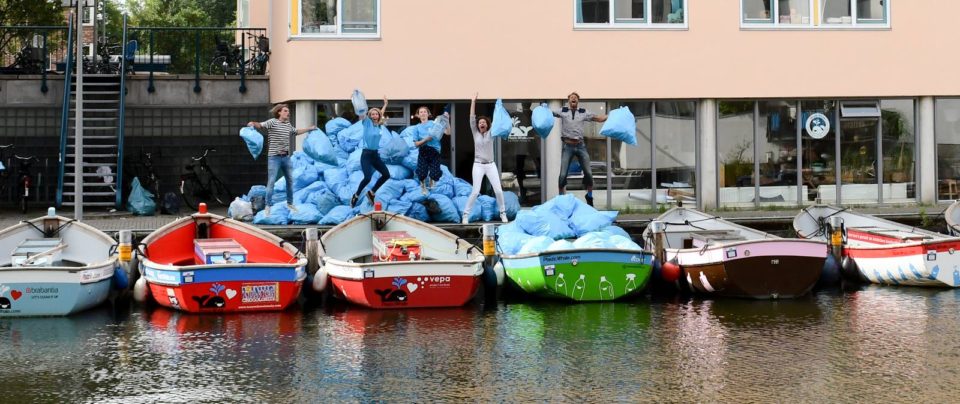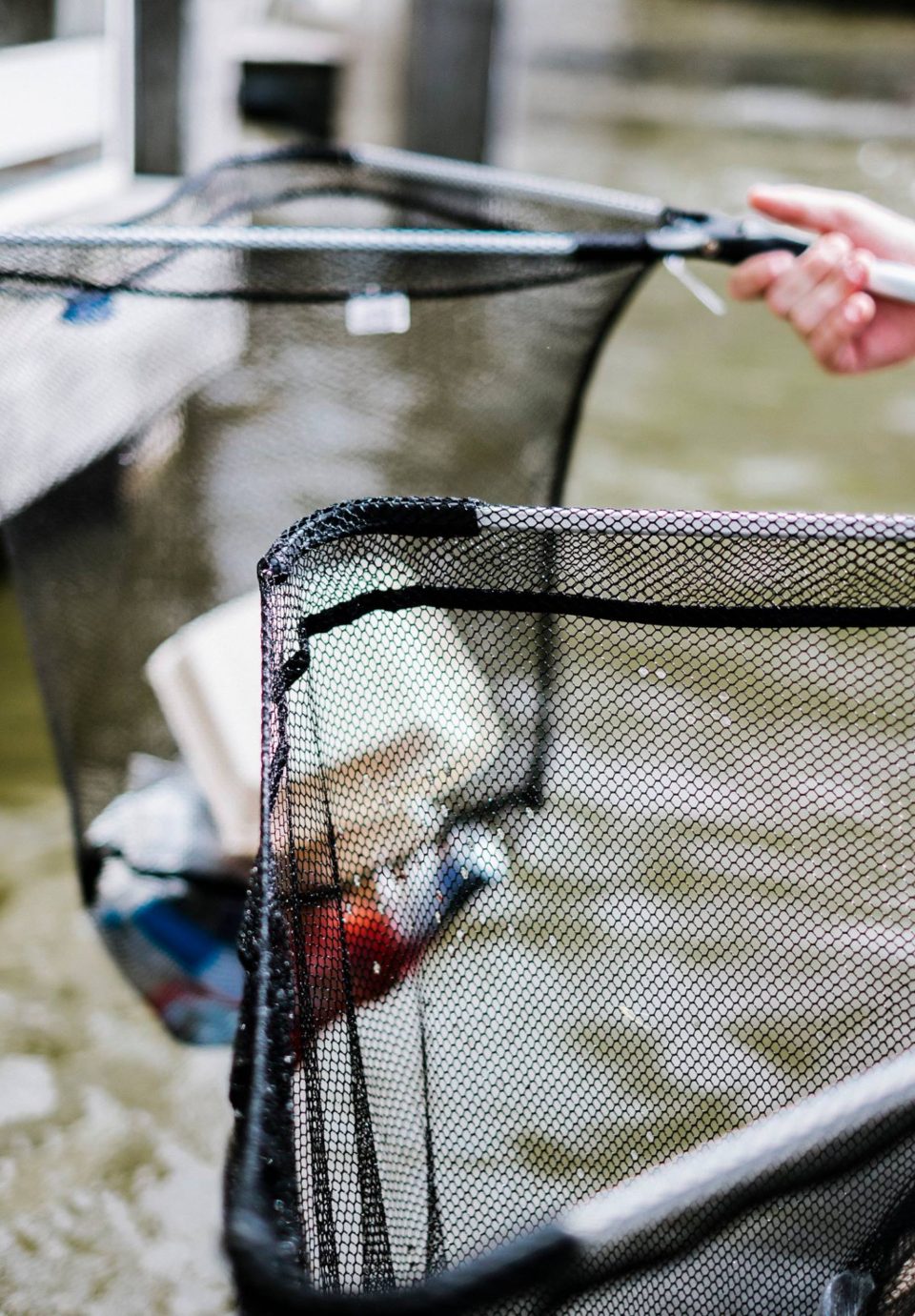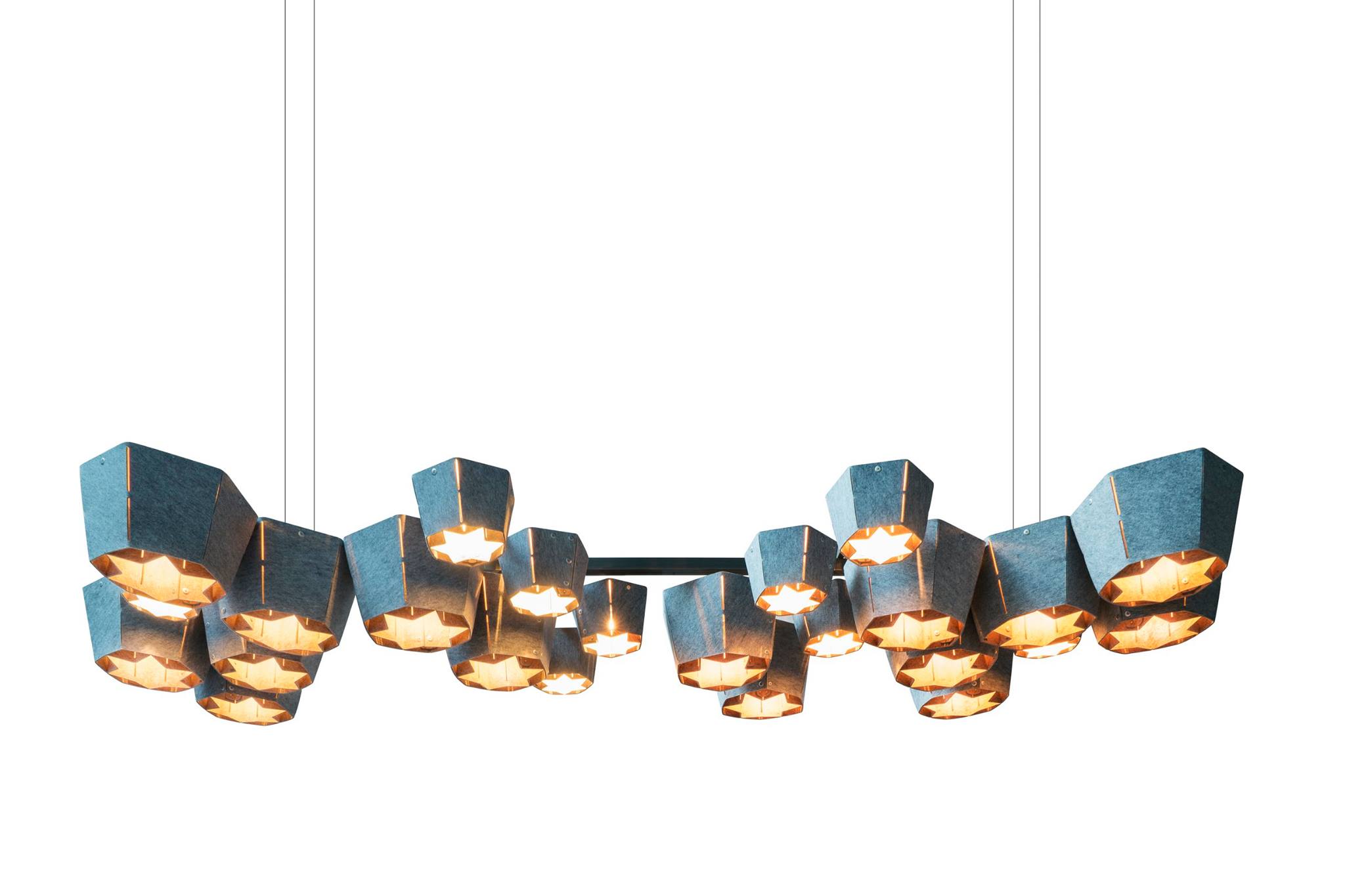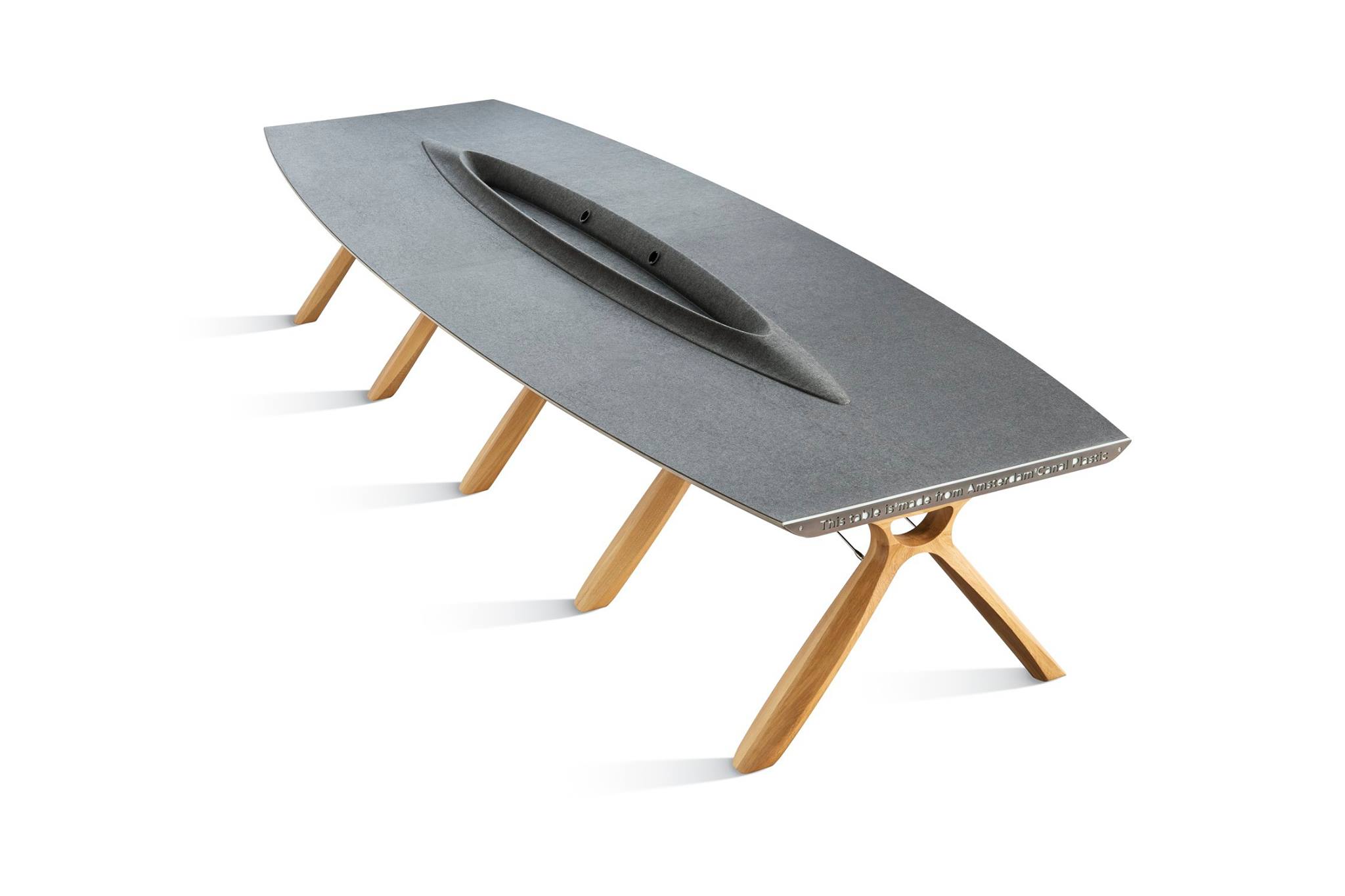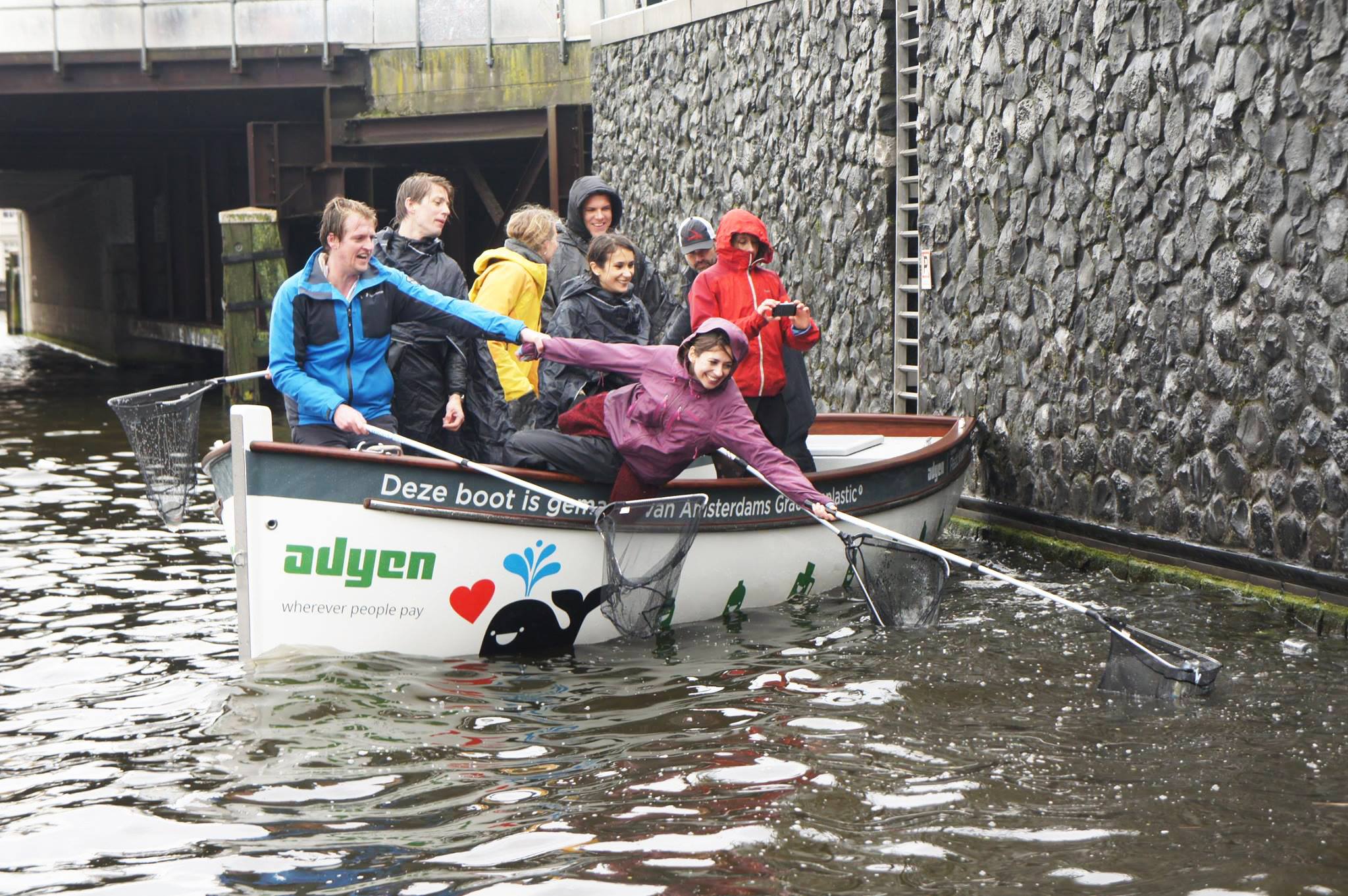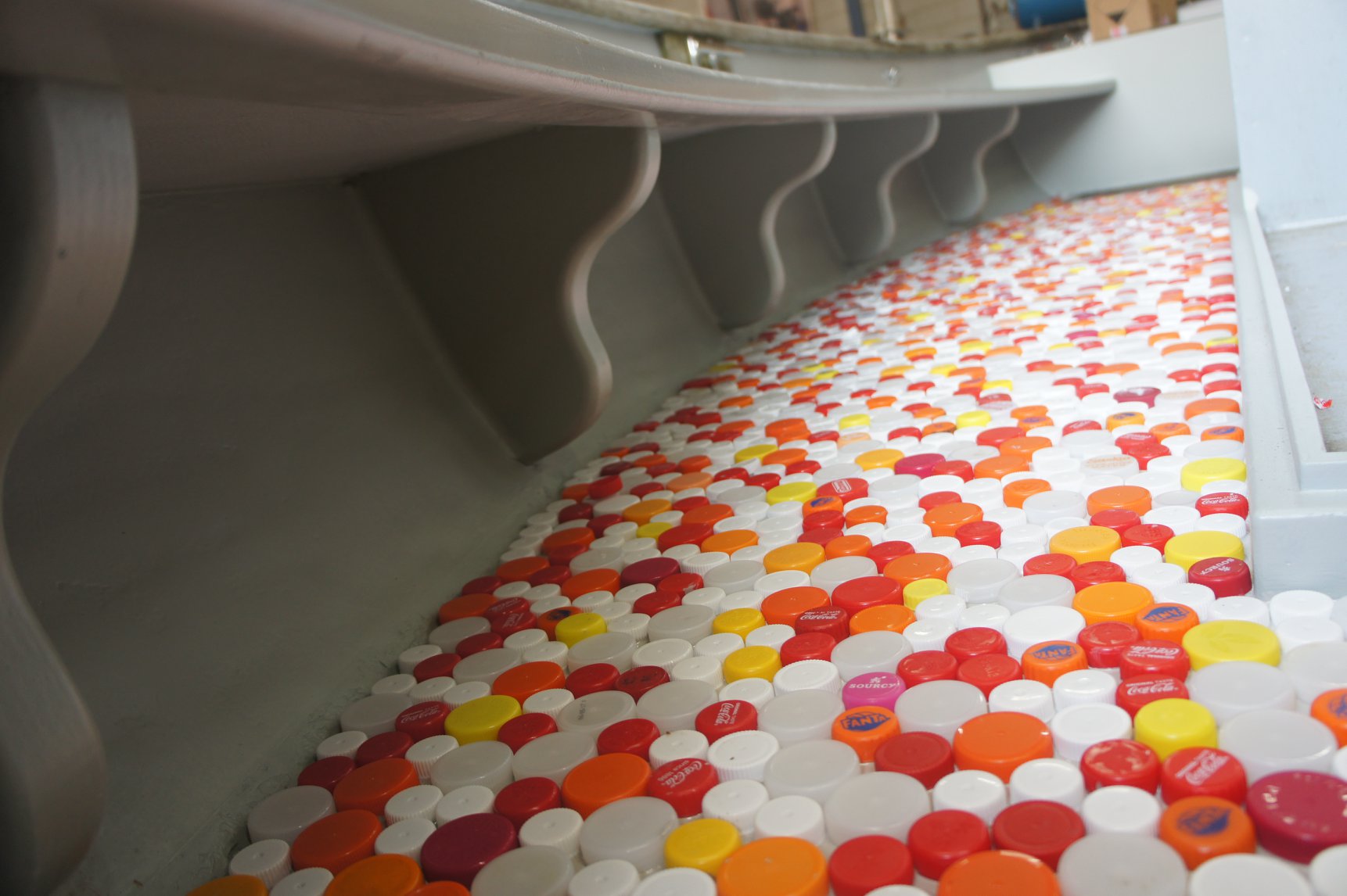It’s not often that tourists line up to collect trash in the cities they’re visiting, and pay for the privilege, too. But in Amsterdam, ‘plastic fishing’ is a surprisingly popular way for outsiders to experience the city’s canals and give back at the same time. As awareness grows about the problem of plastic pollution, so does Plastic Whale’s list of customers. The organization provides two-hour tours in boats made of recycled plastic pulled from those same waterways, arming tourists with fishing nets and encouraging them to scoop up anything that doesn’t belong in the canals.
That detritus might include random items like wallets, keys, aluminum cans and candy wrappers, but it mostly consists of plastic – enough to provide Plastic Whale with a fleet of ten boats. The organization takes the trash to its facilities, sorts it and recycles it, with some of the plastic (and steel) becoming a range of high end office furniture in collaboration with manufacturer Vepa.
“Plastic Whale Circular Furniture is created following the full principles of circular production and design. So besides the recycled Amsterdam Canal plastic, we also make optimal use of other ‘waste streams’ at Vepa’s factory, including recycled steel for in our chairs and residual fabrics for the chair’s cushioning. Nothing goes to waste. At the end of its life cycle, we even take your product back from you. And pay you for it, because we’ll be using it as raw material in new products.”
Plastic Whale describes itself as a “social impact experience” where 100% of what tourists pay goes to their recycling goals. The canals get cleaner, new products get produced and visitors get a little more conscious about the impact of plastic on the environment while experiencing the city in a whole new way. Plastic Whale’s ultimate goal is to go out of business as less plastic appears in the canals in the first place.
The company books its weekend plastic fishing expeditions seasonally through Airbnb.
Images via Plastic Whale’s Facebook
